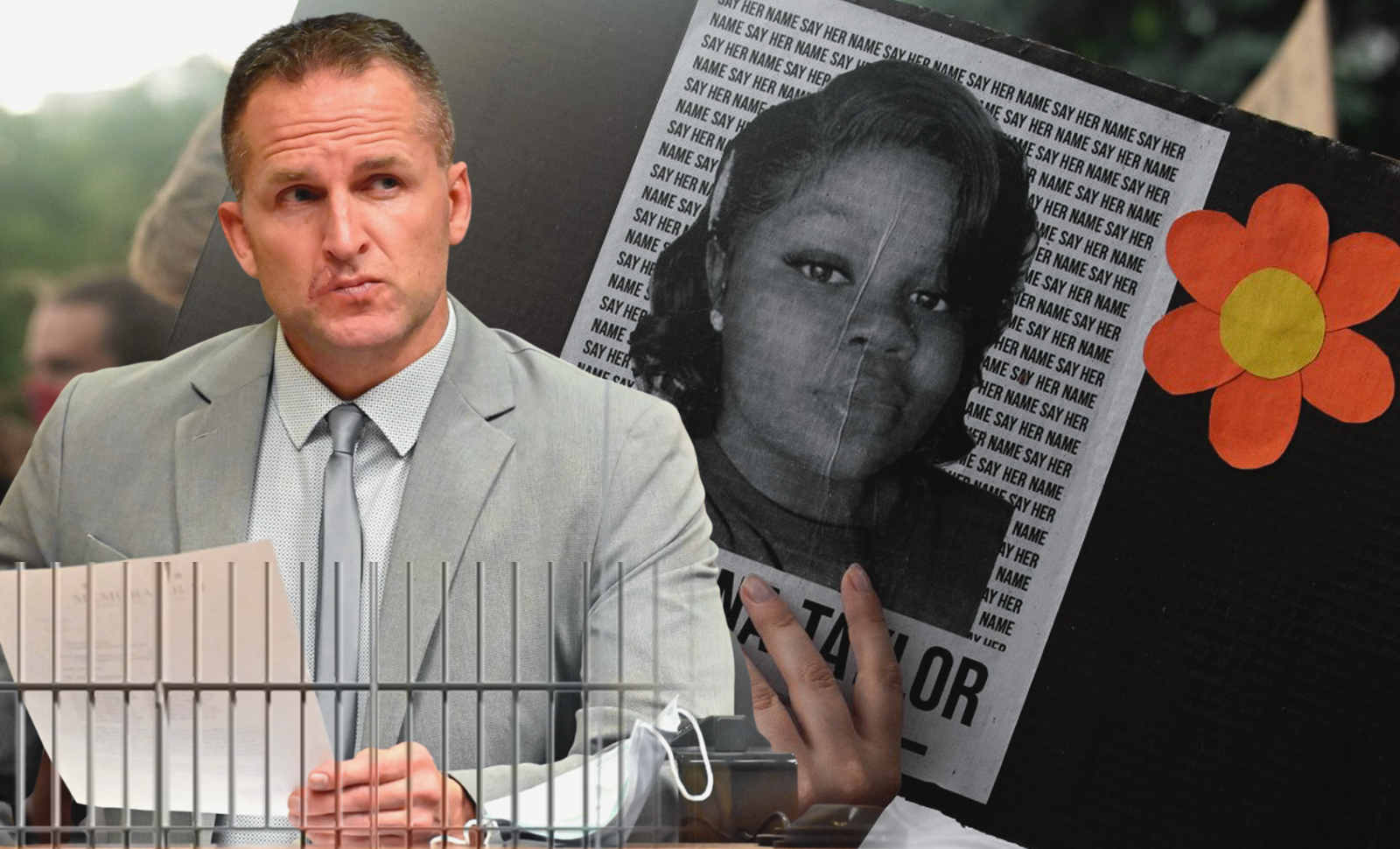In a significant legal development tied to one of the most high-profile police shootings in recent years, former Louisville Metro Police Department officer Brett Hankison has been sentenced to 33 months in federal prison for violating the civil rights of Breonna Taylor during the botched raid on her apartment in 2020. The sentencing, handed down on July 21, 2025, by U.S. District Judge Rebecca Grady Jennings, marks the first time any officer involved in the fatal operation has been held criminally accountable at the federal level. Hankison’s prison term will be followed by three years of supervised release, reflecting both the severity of his actions and the broader call for justice in the wake of Taylor’s death.
The case stems from a late-night raid on March 13, 2020, when plainclothes officers from the LMPD executed a no-knock warrant at Breonna Taylor’s apartment as part of a narcotics investigation. Taylor, a 26-year-old Black emergency medical technician, was asleep with her boyfriend, Kenneth Walker, when the officers forced entry. Believing they were being robbed, Walker fired a single shot, striking an officer in the leg. Police returned fire with a barrage of bullets, 32 rounds in total. Among the officers was Hankison, who fired ten shots blindly through covered windows and doors. Although none of Hankison’s bullets struck Taylor, his actions were deemed a reckless use of force that endangered lives in neighboring apartments.
While the state of Kentucky failed to convict Hankison in an earlier trial, the U.S. Department of Justice under President Biden pursued federal civil rights charges. In 2024, a jury convicted Hankison of violating Taylor’s constitutional rights by using excessive force during the raid. Prosecutors argued that Hankison’s conduct was not only unlawful but put innocent lives at risk, emphasizing that his shots went through a sliding glass door and a bedroom window both covered by blinds without any clear target. Despite this, a Trump appointed faction within the DOJ controversially recommended a lenient sentence of just one day in prison followed by probation, prompting outrage from Taylor’s family and civil rights groups.
Judge Jennings ultimately rejected the DOJ’s recommendation, calling it “incongruous and inappropriate” for the gravity of the offense. She stated firmly that “no prison time is not appropriate,” underscoring the need for accountability in cases involving misuse of police power. During the sentencing hearing, Taylor’s mother, Tamika Palmer, delivered an emotional statement describing the pain and trauma of losing her daughter. Kenneth Walker also spoke, expressing a sense of relief that justice was finally being served. The courtroom was filled with supporters who had long demanded accountability for Taylor’s death, which had become a rallying cry for the national Black Lives Matter movement.
The death of Breonna Taylor, alongside the killing of George Floyd, sparked massive protests in 2020 and intensified demands for police reform and racial justice in the United States. Her name became symbolic of a broader struggle to address systemic racism in law enforcement. In 2020, the city of Louisville paid her family a $12 million settlement in a wrongful-death lawsuit, but criminal justice remained elusive until now.
The case also cast a spotlight on broader issues within the Justice Department. While the Biden administration has taken a more aggressive stance on civil rights enforcement, the internal division over Hankison’s sentence revealed lingering ideological conflicts. Still, the outcome represents a rare instance of a police officer being convicted and sentenced at the federal level for actions taken during official duty.
Other officers involved in the operation, including those who helped secure the warrant using false or misleading information, face separate federal charges. Detective Kelly Goodlett has already pleaded guilty to conspiring to falsify the search warrant, while former officers Joshua Jaynes and Kyle Meany are awaiting trial. Hankison’s sentencing could set a precedent for how future civil rights violations by law enforcement are handled, signaling a shift however modest toward greater accountability.
















